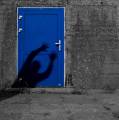Advanced ERP for OCD: how subtle rituals can limit your progress
What is exposure and response prevention (ERP) for OCD?
As any good psychologist experienced in treating OCD can tell you, the most effective treatment for OCD is exposure and ritual prevention (ERP). You may also see this type of therapy referred to as exposure and response prevention. In this case, the semantics are immaterial; the concepts are exactly the same. ERP is a type of cognitive behavioral therapy (CBT) that is based on the premise that the best way to reduce your symptoms is to practice activities designed to trigger your anxiety and then resist any urges to ritualize. ERP has two main components:
- exposure – purposely doing activities that are designed to elicit your anxiety
- response prevention – actively resisting the urge to complete a ritual
For example, for someone who worries about germs, an exposure might involve purposefully touching a trashcan and then resisting the urge to wash (i.e., a washing ritual).
Both the exposure and response prevention elements are critical for effective ERP. Exposure without response prevention (or with poor response prevention) will not decrease your symptoms. In fact, in some cases, exposure without response prevention can actually make your OCD stronger because you are reinforcing the idea that the only way to escape from OCD-related anxiety is to ritualize. In essence, the more you practice your rituals, the stronger and more debilitating your OCD will become. For most people with OCD, ERP is pretty scary at first. You are intentionally doing the very thing that the OCD part of your brain has been warning you about. Fortunately, that fear diminishes with repetition.
As you practice ERP and gain confidence in your ability to resist rituals, the process becomes easier and your symptoms become more manageable. Therapists who specialize in treating OCD can help you learn to practice good ERP and deal with the anxiety you may feel before (and during) an exposure. Well-trained therapists are also experienced in being able to recognize a wide variety of rituals and avoidance behaviors, some of which you may be less able to notice yourself. As a psychologist in Palm Beach, Florida, I work closely with kids, teens, and adults throughout the greater Palm Beach, Fort Lauderdale, and Miami areas on strategies for recovering from OCD.
With consistent ERP that emphasizes both exposure and response prevention, most individuals with OCD experience a significant reduction in their symptoms. However, sometimes you can be practicing regular exposure and still not get the results you want. If you have experienced this, it is possible that you might be performing more subtle rituals that you haven’t recognized. Here are some strategies for stepping up the RP in your ERP. These strategies assume that you already have a basic working understanding of ERP and are looking to increase the effectiveness of your exposures.
- If your exposure involves touching an object, make direct, sustained contact with the object. Do not limit contact to your fingertips; apply direct, firm pressure with your whole hand. Obviously, refrain from washing, using hand sanitizers, changing clothes, etc. after your exposure.
- Don’t limit contact to hands. Ideally, any touch-based exposure should involve touching the object to other parts of your body as well. Try touching the object to your legs, face, and other body parts.
- After completing a touch-based exposure, go about your day doing whatever activities you would have normally done. Don’t let ERP change your routine. Continue to interact with other people, touch things as you normally would, etc.
- Pay attention to your body position. If your exposure involves looking at a feared object, are you orienting your body directly toward it? If not, try facing the feared object directly.
- Make eye contact. Again, in cases where exposure involved interacting with a feared object, try to focus your gaze directly on the object itself.
- Are you performing any mental rituals? If, after touching something that looks dirty, you find yourself mentally trying to convince yourself that you’re clean or that the object wasn’t dirty, you are performing a mental ritual.
- Avoid reassurance seeking behaviors. Do not ask other people if they think you’ll be okay if you don’t ritualize. If your exposure involves thinking about harm coming to other people, do not call them to make sure they’re okay.
- Do not mentally distract yourself while doing an exposure. This decreases the effectiveness of the exposure.
- Individuals with harm obsessions frequently over-control their bodies in order to keep themselves from “losing control” and acting on their thoughts. If your obsessions involve harming others, avoid over-controlling your body. Keep your hands out of your pockets, and keep your arms uncrossed and open.
- Never terminate an exposure before you have experienced some resulting habituation. If you terminate an exposure while your anxiety is increasing, you may sensitize yourself to the exposure.
In general, remember that the goal of an exposure is to stay with the situation long enough for habituation to occur. By incorporating the above strategies into your regular ERP sessions, you will make more rapid progress in reducing your symptoms.
Questions? Comments? Sound off below.
Want Updates about New Content?
Follow Me!
Follow @drstevenseay













Dear Dr. Steven,
Firstly, I would to express my utmost gratitude for the establishment of this website and the knowledge regarding OCD within. I have developed deeper understanding about my condition and this article on ERP is especially useful to me.
However, there is a point that I’d like to raise in relation ERP.
My OCD mostly has to do with cleanliness and germophobia. Although OCD brought me a lot of disadvantages e.g. wastage and time consumed to perform rituals, I have to credit my OCD (it sounds wrong but this seems to be the way to put it) for my health since I’ve practiced OCD which was 3 years ago. I’m in my early adulthood (college) and as you know college kids in general are highly prone to diseases like coughs, fevers, flu etc. It may be hard to believe but in these 3 years I’ve managed to prevent myself from getting sick for less than 3 times (as far as my memory serves me) in any form or severity without any medication or supplements. Up to date, my OCD rituals took me roughly about 2-3 hours per day (just a ballpark figure and the 2-3 hours is what I estimate to be the extra time taken had I been a “normal” person without OCD).
Two points I’d like to make are these:
1. From a psychological treatment point of view, ERP to me is considered excellent because as you said it is a fitness training. But I’d like to know on an overall hygienic point of view, don’t you think ERP might endanger or increase our risk of catching a common disease? And therefore;
2. How would we know the line between OCD and daily hygienic routine? Is there a good hygiene guideline that OCD can follow on the road to recovery? It is known that we should always wash our hands before meals, after toilet business, after handling body fluids etc. That would mean washing hands more than 5 times a day, even if you are a normal person without OCD isn’t it! What I’m trying to say is that it is confusing for us even when our heart intends to eradicate or lower OCD symptoms in our life.
I understand that maybe the points above have be raised before by others. In that case maybe you can just direct me to the article that address those issues. Otherwise, I’m very interested in hearing your opinion regarding aforementioned issues.
Thank you so much.
Hi Yvonne,
Many individuals with contamination fears share your concerns. I think many find it helpful to focus on the likely costs/benefits of change, sometimes in the context of a motivation script. For example, “If I reduce my rituals, it is possible that I might increase my chances of getting sick. However, I am losing hours of my life every day to my rituals. In one week alone, I am losing 14-21 hours to my symptoms; this is time that is lost to me forever and that I’ll never get back. It’s also possible that my rituals aren’t working anyway. Maybe I have a strong immune system, or maybe my ideas about the number of germs around me is exaggerated. Although I can’t know the answers to these issues for sure, I suppose I would rather deal with a common illness than live with the hell of OCD.”
Washing should never be feelings-based; it should reflect functionality. The reality is that many people in real-life practice poor and/or inconsistent hygiene, and they live healthy, happy lives. Universal washing guidelines may exist, but my opinion is that these guidelines should not be used by people with OCD, because attempts to perfectly follow these guidelines actually reflect subtle rituals. After all, how many people WITHOUT OCD have looked up and are using these guidelines?
Thank you doctor. And I agree with the opinion that the guidelines, even if there is a specially designed one for OCD, will only be added to the list of rituals needed to be performed by OCD sufferers. And the last line made me smile. How true that is.
These days I have been reducing my rituals step by step. Sometimes new ones pop out and as soon as I realise the new ones I sometimes adopt this “technique” akin to what you have on an ipod shuffle – “Randomize” – sometimes I would immediately stop what I’m doing, sometimes I won’t. Later on when I slowly mentally prepared for the “terror” I stopped the rituals altogether. The thoughts itches but I’m living with it, sometimes by prevent thinking about the “terrror”, sometimes by thinking about the “terror” and tell myself it’s not going to happen. I hope what I’m doing is right somehow. I’m kinda glad that I identified my OCD and now trying to shake it away at an early stage, it’s been 3 years and I really couldn’t imagine what will happen if I let it drag on and worsen for 10 years or so.
Thank you so much again.
Glad to hear that you’re making progress! I like your analogy of the Ipod shuffle — adding an element of randomness can be especially helpful if you’ve noticed that new behaviors are taking on the characteristics of rituals.
Wishing you the best with this!
Doc – as always, thanks for all the info you provide to all of us who struggle with various forms of OCD. As I continue to unravel my OCD, I do have a few more questions for you. I think these questions actually fit into this blog rather well.
Although much of my physical anxiety has subsided over the breathing obsession, I still have a lot of “anticipatory anxiety” (i.e.conditioned “thoughts” that drift in and out during the day that are “what-if’s in nature about breathing”). (i.e. What if I think about when I get home today, what if I think about it during basketball, or working outside, what if I think about it when I try to go to bed, what if the hyperawareness of noticing my breathing will cause me to fixate on it). I am trying to just let these thoughts sit in the back of my mind (welcome them), but, they still generate a lot of anticipatory anxiety – and I want to be so much at peace with tme. So, one of my questions I have is, should I be doing something else when these what-ifs come to the forefront? You have stated that imaginal exposure works well -to help us “come to terms” with anxiety – but how would I do that for anticpatory anxiety? Examples?
Overall, I think that I am at a point with my OCD where I feel I have eliminated a lot of physical anxiety, but I would just like to learn more about about where to go from here. Some therapists state that you are making progress once the anxiety starts to subside. The spikes (i.e. thoughts about the situation may still be there during the day, but eventually will start to diminish as you spend less time focusing on them). – Easier said then done…….
Thanks for your advice. Examples would be great…….
Mike
Hi Mike,
In general, it can be helpful to practice the very situations you fear. Imaginal exposure would probably be less helpful in this context. For example, some people practice mindfulness to breathing while playing basketball, getting ready for bed, etc. If you are hoping to keep these experiences from being “tainted” by your breathing symptoms, they are probably especially vulnerable to being affected anyway.
Your best bet is to work directly with a psychologist who can design an individualized plan for you and help you trouble-shoot any problems that might arise. Because people approach these exercises so differently, general examples can be misunderstood and/or misused.
Thank you for this website. I’ve been amazed to discover this website and others related to pure-o ocd and rocd— I realize now that I’ve been dealing with this for most of my adolescent and adult life and it is draining! While in some ways I find relief in knowing that some of the damaging and scary thoughts I’ve had about me and (currently) my wonderful relationship with a wonderful partner are manifestations of the ocd, I also find myself feeling hopeless or sad that perhaps this is going to haunt me forever and prevent me from being fully happy and fulfilled in my life, work, and relationships with my family, boyfriend (who will one day be my husband if I don’t drive him away or talk myself out of the relationship because of my worries), and future children. It’s almost like I want to hide away because I don’t want to put the people I love through the hardships that I worry my ocd will create. I’d really appreciate your thoughts on that and on the following regarding ERP specifically:
While I have certainly had thoughts about doing violence to others/being gay/hurting myself, etc. in the past (and they are occasionally reoccurring), my chief issue right now is with my relationship. I constantly worry about whether he is “the one” and find myself picking apart his intelligence/intellectualism (he is just as smart as me, but I am more intellectual than he is), worrying whether I am attracted to him, etc. It drives me crazy and as soon as I calm down about it by thinking through things rationally, or seeking reassurance (which I do a lot), the fears come back up. Mostly, they are fears that one day I’ll be bored, or one day I will find someone better suited for me and leave or hurt him which kill me. Admittedly, I do find myself avoiding highly intellectual conversations or trips out to restaurants/bars without him there (we’re in a long distance relationship so I am often asked to do that with friends) because I worry that I’ll meet that “other” person. However, I also just find myself worried about our future when I’m sitting around, at work, etc. It drives me crazy and I just want to get over it so that I can enjoy this wonderful life that I have. I’m seeing a therapist but so far nothing has helped. I don’t want to hurt my boyfriend or anyone else in my life and I’m worried that unless I get this figured out, I will eventually drive him away or, worse, commit him to a life of dealing with an unstable partner– and he deserves so much more!
Hi Vivian,
Great question, I was wondering if you got a reply from the doctor, because I have something similar going on in my life.
many thanks
p.s. this message of yours opened my eyes to my own behavior towards one aspect of my life which i never considered anything to do with ocd, i just thought my worrying was normal, i dont know maybe it is normal, but now i have this option to think that maybe its not, and thank u for that:)
Hello Steve ,
I loved reading your article , there’s so much to learn , my OCD is with past mistakes for which I am not even solely responsible but if I don’t act on compulsions or imaginary accept that okay Iv done mistake , the OCD almost kills me . Any tips would b gold . I am doing mindfulness but I think it’s making matters worse , do I ignore . Accept … I’m all confused
A willingness to experience the anxiety aroused by difficult thoughts (without ritualizing!) is a very important contributor to treatment success. Because it can be a very stressful process, you might consider getting some assistance from a therapist along the way.
Hi,
I’ve struggled with various forms of OCD for a large portion of my life, and mainly just got through them by willpower. Currently however, I am a freshman in college, and most definitely suffering from a form of emotional contamination related to my roommate.We are friends,and he is a great guy, and I have in no way let him on to the negative intrusive thoughts I have about him, but it’s rough. It mainly revolves around a deficit between our achievement standards. He somewhat rarely goes to class,has very little social life outside of communicating with me,and is far less driven to workout than am I. All that being said, h hase some great qualities, and I have no problem saying that,but I am constantly plagued by intrusive thoughts,that his laziness will creep into me. I know more about OCD, and am more rational than I have ever been in my life. Honestly, It is easier to dismiss these thoughts than it has ever been, but the frequency of them is astounding.It has gotten to the point where my OCD mind is telling me that they precipitate every action,and that my easy dismissal of them is actually giving into the contamination. It has been especially bad the last few days, as I neglected my early morning workouts due to tiredness, and thus have become (in the OCD side of my brain) that I have transformed the fake contamination into true weakness.
Hey doc.
Umm you said that we should practice our thoughts right? But what if your thoughts are dangerous? I always havr this fear that I might kill someone anytime. How do I practice that? I cant just go killing someone for no apparent reason
I really need help with my fear please help.
Thank you in advance
Hey doctor
first of all I want to say that you said that we should practice our fears. So what if these fears are dangerous? I have a fear that I might just kill someone… and you expect me to practice to kill someone. I just have this feeling.. its getting annoying please help
thankyou in advance 🙂
None of this article helps me mine is with my child who I love to bits but males will know what I’m talking about here when u wake up in morning and have half erection this is common for me before the intrusive thoughts even started I hope it is intrusive thoughts because one morning I thought about my daughter in that way to see what would happen and I think I was aroused by this but when I thought of it properly when I woke up more I was sick. This is not first thoughts I have had which keeps me some bit sane because for 3 months before this started I had thoughts of my child dying which was so stressful but this feels way worse I don’t kno wat ta do with myself
You might want to check out the articles about sexual obsessions. These would be more targeted to this specific obsessive worry.